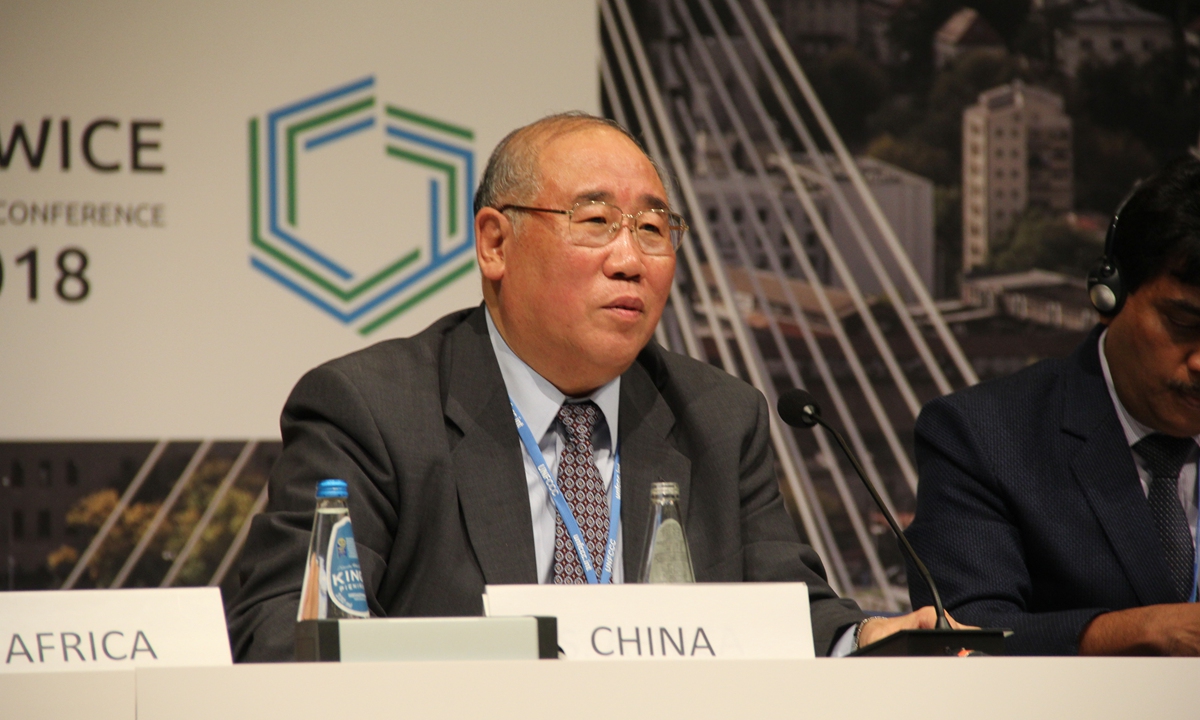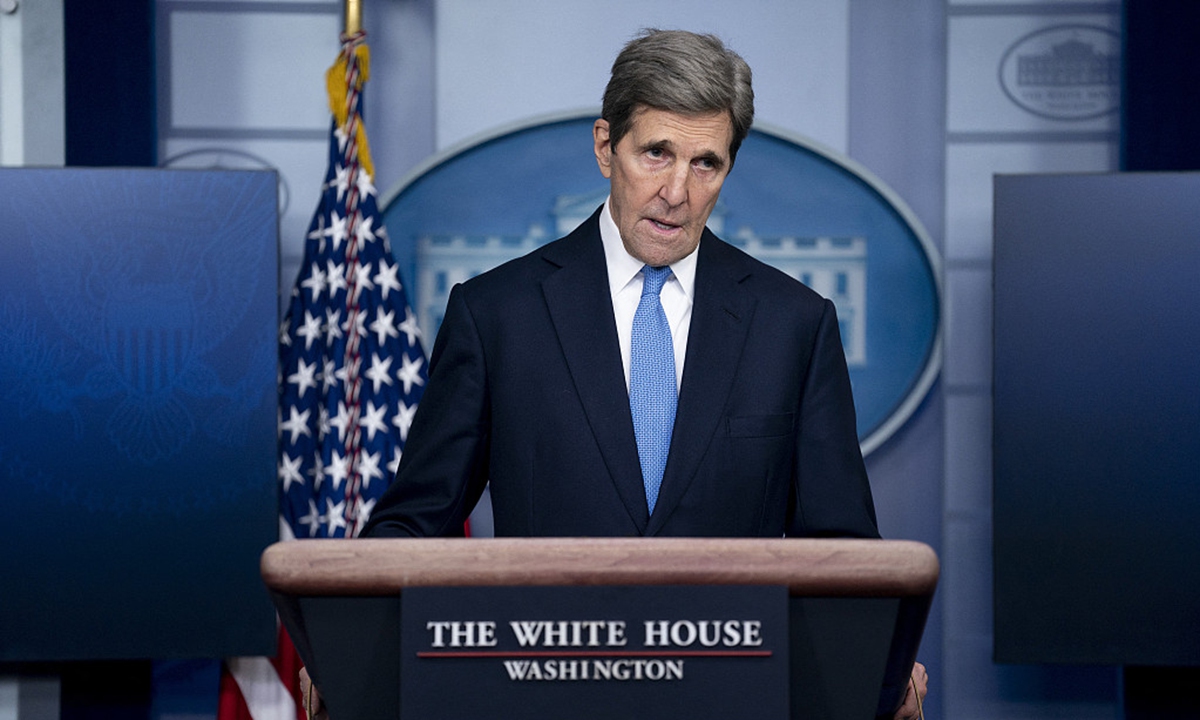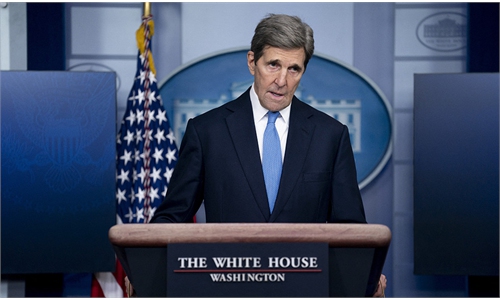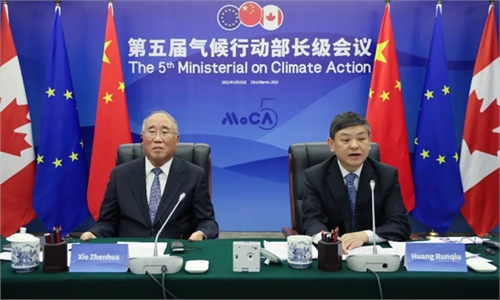
Xie Zhenhua attends the Conference of the Parties (COP24) in Katowice, Poland in December 2018. Photo: Shan Jie/GT
John Kerry Photo: VCG
At China's invitation, US climate envoy John Kerry will visit China from Wednesday to Saturday. He will be the first high-ranking US official to visit the Chinese mainland since July 2019. He is scheduled to meet with Xie Zhenhua, China's special envoy on climate change, in Shanghai and is likely to have meetings with other Chinese officials.The US stressed that its relationship with China "will be competitive when it should be, collaborative when it can be, and adversarial when it must be." The climate change issue is one of the few areas where the US has a high willingness to work with China right now. The reason is simple: Without China's cooperation, none of the Biden administration's climate ambitions can be achieved. As a result, Kerry has decided to come to China.
However, Kerry's visit is clearly not an icebreaker in China-US relations. The US attitude is to completely separate China-US cooperation from the competition and confrontation between the two countries. Cooperation with China is not aimed at improving China-US relations, but rather a separate project to advance the US' own interests. In the case of climate change, US President Joe Biden wants not only to make some achievements during his presidency but also to win over his European allies by pressing the issue ahead, which in turn is aimed at strengthening the alliance system to deal with China.
So although dealing with climate change is a common mission of all humanity, the Biden administration is trying to use China to promote the US' own interests and further contain China by strengthening its alliance system. They are thinking of a deal in which China one-sidedly fulfills its obligation and the US gains from that unilaterally.
In this regard, Kerry's visit is a good thing. But it is also complex as it brings challenges.
We believe that China should just let this complexity be. We welcome Kerry's visit, but we should not expect too much from it. We should follow our own established plans and commitments to the international community to work with the Biden administration on this matter. We should never make compromises that would undermine China's own interests.
China has already committed to striving to achieve a peak in carbon emissions by 2030 and to achieve carbon neutrality by 2060. The country has included these goals in its 14th Five-Year Plan (2021-25) for national economic and social development and the long-range objectives through the year 2035. Whether Kerry comes or not, China will stick to this goal. We welcome the Biden administration's decision to restore a positive approach to climate change issues. And we are glad to see China and the US work together to promote the UN climate plan and coordinate their domestic policies accordingly.
By playing more of a "leadership role," the US wants to force China to further concede and make China and other countries do more of their obligations, which is also what China should not accept. Washington lacks both the moral basis and the practical power to dictate to Beijing on climate change issues.
Since we want to cooperate on these issues, the US should show its sincerity. It should give up its strategic calculations. However, contrary to the olive branch extended by Kerry, Washington has just included seven Chinese supercomputing companies in its list of entities. Climate change issues require a lot of technical input, and weather monitoring is one of the areas where supercomputing is most widely used. It is not very genuine to call for cooperation while having a stranglehold on China's technology in this sphere.
In fact, China-US relations are intertwined. It's unrealistic to hope that the two countries could establish some "special zones" to reinforce cooperation after their relationship is messed up. For instance, against the backdrop of China-US confrontation, both sides have lost their basic trust of each other and are concerned that the other side would set traps. It would be luxurious if either side could do its best to promote cooperation in a certain field.
The Biden administration is pushing a climate deal, but the deal may be dumped after the leadership change in the White House in a few years - this is China's concern. Washington is seeking to negotiate a deal with China, but its real purpose might not be only about climate change. Washington also has doubts over whether Beijing has something else on its mind when talking with Washington on climate change. When representatives of both sides sit together and look at each other, their feelings and confidence must be very different from when bilateral relations were sound.
Nonetheless, representatives of the two countries should be encouraged to have earnest talks. It's better to have one more point of cooperation than having one more point of conflict in the China-US relations. After all, the bilateral relationship is not all about strategy, it is a set of various exchanges. Whoever can push the bilateral relationship forward a little should be commended.



